 13/03/2024
13/03/2024
COMPARE THE MOST POPULAR TYPES OF PLANT SUBSTITUTES IN AGRICULTURE
COMPARE THE MOST POPULAR TYPES OF PLANT SUBSTITUTES IN AGRICULTURE
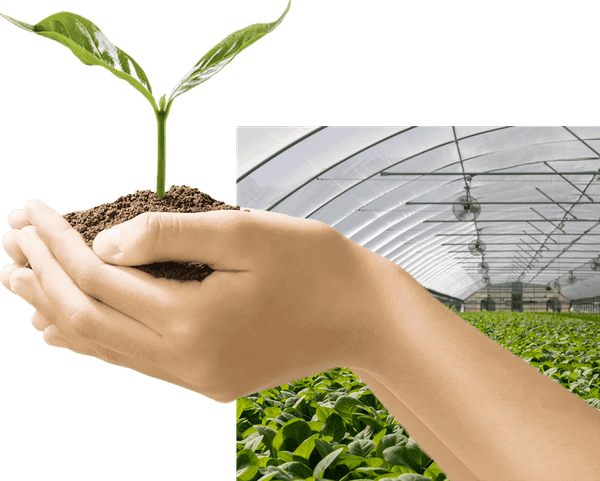
Currently, in a context where consumers are increasingly interested in safe, high-quality agricultural food and wish to minimize the occurrence of pests and diseases, as well as ensure nutritional sources, methods of growing crops at reasonable prices are becoming increasingly important. may have become a preferred choice. There are many common types of media used today and each type has its own advantages and limitations. In this article, Ecological Source will compare the most popular types of plant growing media in agriculture.

1. Sawdust
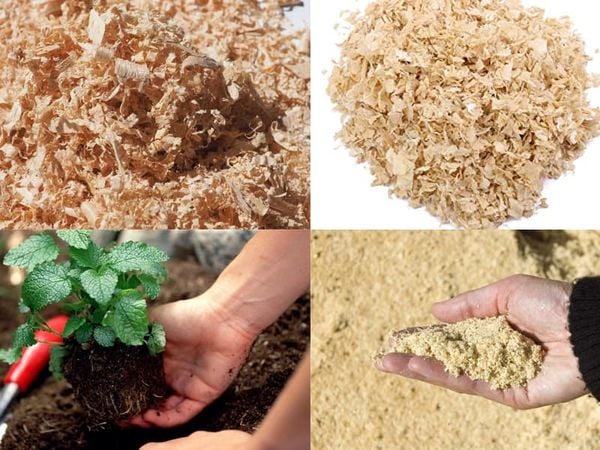
Sawdust is a waste product from the wood production and processing process. The main ingredient in sawdust is easily decomposable cellulose. Sawdust has low air permeability but possesses very good moisture retention ability. When using sawdust, people should mix it with sand so that the material can distribute moisture evenly.

* Advantages:
- Fluid, quick drainage
- Disease-free and suitable as a growing medium
- Provides good moisture retention
- Suitable for many types of plants
* Disadvantages:
- Poor in nutrients because it is mainly carbon
- Poor water retention ability due to containing substances that are difficult to decompose
- Sawdust substrate is mainly cellulose so it has low air permeability and uneven moisture retention
* Notes when using:
- Use sawdust from wood that does not contain essential oils
- Need to be handled properly before use
2. Peat
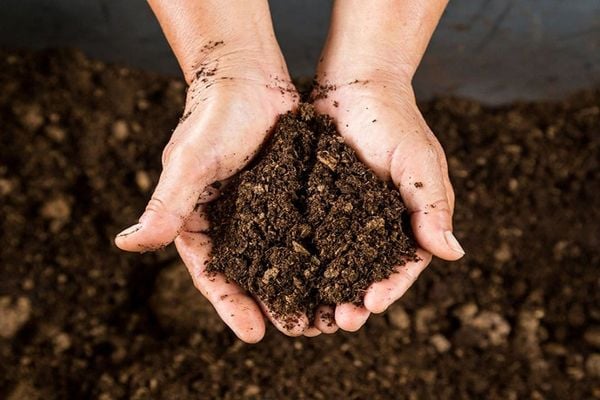
Peat is an organic layer on the surface of the soil, formed by incomplete decomposition of plant residues buried for a long time in continuous anaerobic conditions. Peat substrate contains all the necessary nutrients, helping plants grow and develop well. Specifically, peat has the ability to retain moisture, store nutrients for plants and have high resolution density.
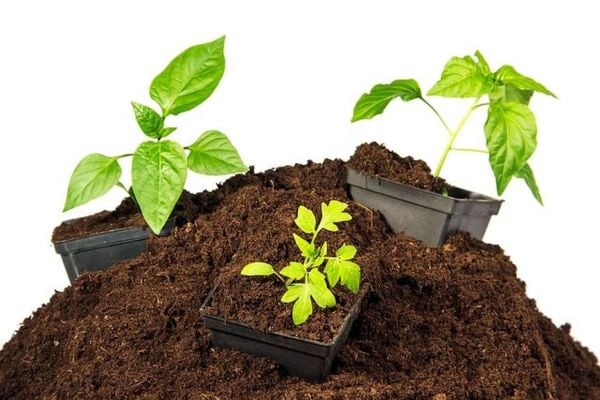
* Advantages:
- Moisturizes and dissolves well
- Supports improving soil structure
- Increases soil fertility and organic matter
- Porous, light, breathable, retains moisture well, keeps nutrients from being washed away after each watering
* Disadvantages:
- Needs to be combined with manure to increase efficiency
- Processing process is complicated so must be fertilized in large quantities which is both laborious and costly
* Notes when using :
- Do not use peat directly
- Not suitable for some seedlings
3. Tree bark
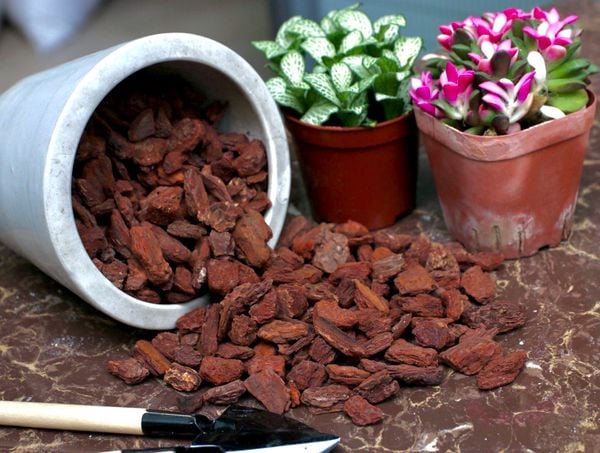
Most types of fresh or dried tree bark can be used as a growing medium. However, fresh tree bark often has a slightly poor ability to retain moisture, so in the first 2-3 weeks the tree will grow more slowly. Among the countless types of tree bark, people should use a substrate made from processed pine bark, without resin, light and able to absorb water. Besides, pine bark also contains resin with high antiseptic properties, long-lasting decay and low pathogens. Therefore, this is the ideal antibacterial environment for plant roots to grow.
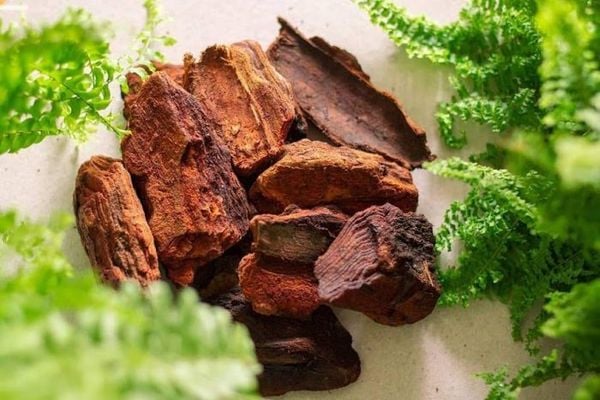
* Advantages:
- Easy to find
- Limits pathogens
- Antibacterial, good drainage, high durability
- Suitable for hydroponic vegetables, mushrooms, flowers, and sprouts
* Disadvantages:
- Contains a lot of lignin ingredients and tannins, need to be treated before use
- Poor water retention and moisture retention
- Not suitable for many types of plants, cannot be used to grow seeds
- Many types of bark are difficult to handle and not suitable for growing plants
* Note when using
- When transporting, the shell may break. You should sift it again before planting because small debris can squash the plant.
- When using, to prevent strange mushrooms from growing, make sure your substrate has good drainage.
- Able to retain mineral salts, so it is necessary to flush them with water to limit excess salt in plants.
4. Coco peat substrate
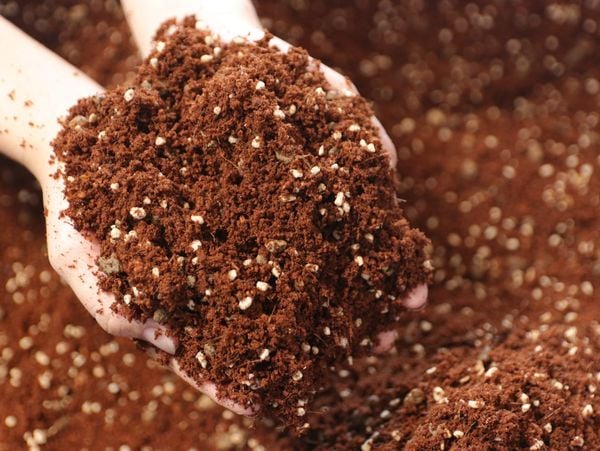
Buy now: The best coco peat substrate
Coco peat is a material that is no longer unfamiliar to gardeners. This type of substrate has many benefits for plant growth and is very environmentally friendly. It is a low-cost and reusable substrate made from coconut shells. Coco peat can be used repeatedly or converted into organic fertilizer to supplement soil. Not only that, coco peat also helps reduce the amount of water needed and the need for fertilizer for plants, thanks to its excellent ability to retain water and provide nutrients for plants. This type of substrate is considered the best in the growing system.
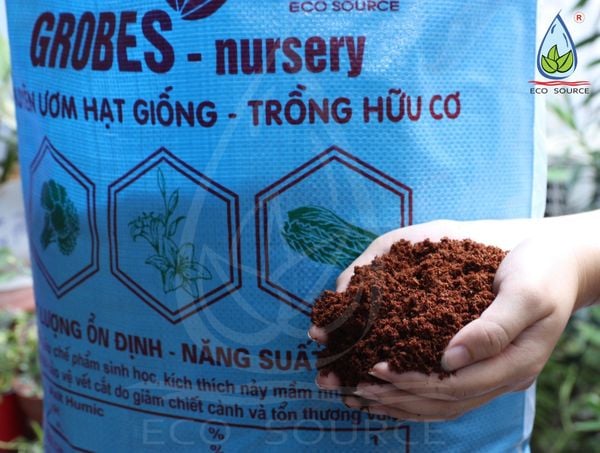
Buy now: The best coco peat substrate
* Advantages:
- Natural organic source, helps develop plant roots.
- Suitable for all types of plants
- Good ventilation, good moisture retention
- Environment that nurtures beneficial microorganisms for plants...
- Minimizes harmful pathogens and reduces the risk of pests
- Can be reused Used many times
- It is a substrate with sustainable resources
- Cheap, easy to preserve and easy to use
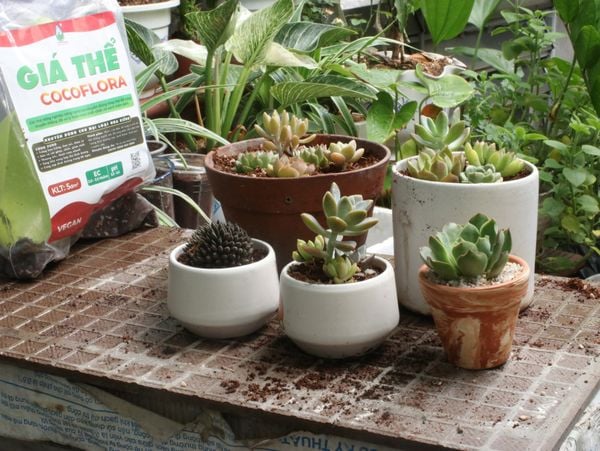
Buy now: The best coco peat substrate
* Disadvantages:
- Coco peat contains lignin and tannin, two compounds that are difficult to decompose and can be toxic to plants. “Using coco peat directly can harm the tree”
- The processing process is time-consuming
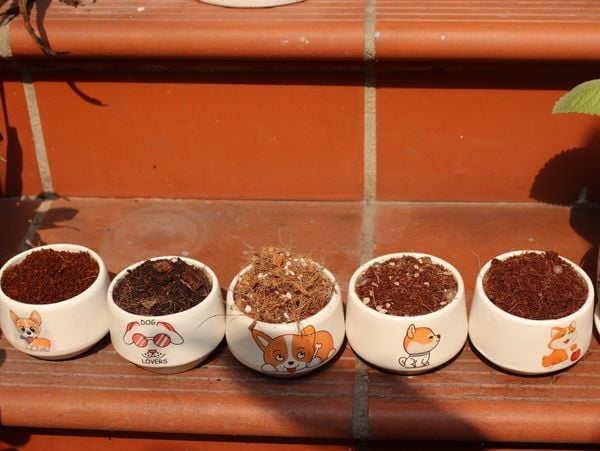
Buy now: The best coco peat substrate
* Notes when using
- Coconut fiber needs to be treated to avoid harming plants.
- Processing coconut fiber at home is quite complicated as it requires many steps: such as soaking lemongrass in a lot of water, then soaking in agricultural lime powder to balance the pH. Therefore, people often choose to buy the processed type for ease of use. In fact, the industrial process of treating coir peat has a very high capacity, so the price is hardly much more expensive. You just need to choose a reputable brand and you can use it with peace of mind.
- For block coir, this is usually the finished product that has been dried and compressed with high pressure. You must soak it in water according to the manufacturer's instructions so that the coconut mulch absorbs enough moisture and softens.
5. Smoked rice husks
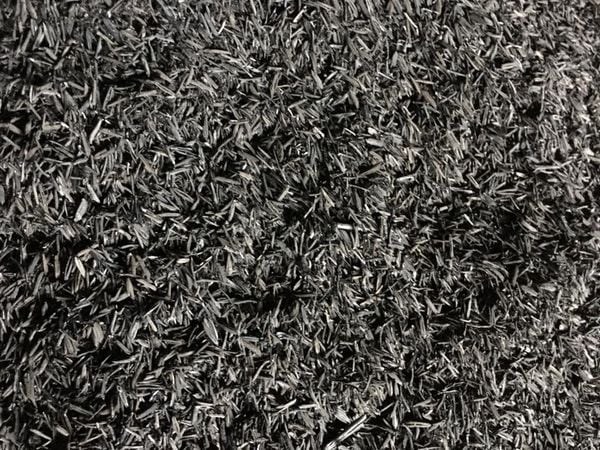
Smoked rice husk is also known as biochar, rice husk charcoal, biochar. This type of substrate is made from fresh rice husks (raw rice husks) piled up, then heated at a certain temperature in anaerobic conditions, to kill all pathogens. The main ingredients of smoked rice husk include potassium, silicate and trace mineral salts.
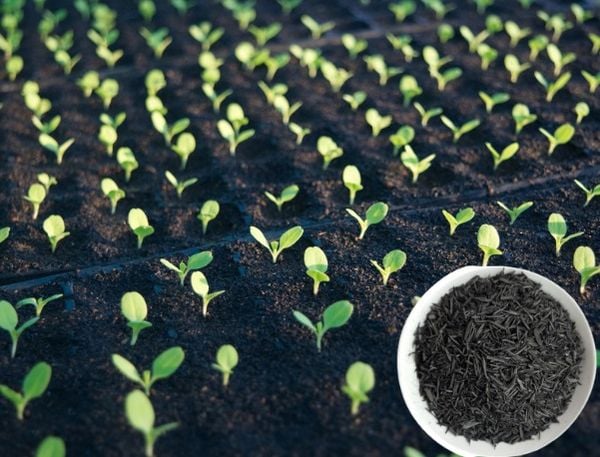
* Advantages:
- Durable and less decomposed over time
- Light, clean, porous, retains moisture well
- Sterile, does not contain harmful fungi
- Cheap price, easy to preserve and easy to use
* Disadvantages :
- Can heat plant roots on hot days, cannot replace soil.
- Because the nutrient content is not high and diverse, soil cannot be replaced when growing plants. Needs to be combined with other types of substrate
* Notes when using:
- Before use, water 1-2 times to reduce the salinity of smoked rice husks.
- Smoked rice husk is a good growing medium but should not be overused as it will cause heat to the plant, only use enough as recommended ratio
- Smoked rice husk is alkaline so if used in too large a dose it will turn the soil into alkaline soil. makes it difficult for plants to absorb Magnesium
- You should use smoked rice husks that have been completely burned and still have their wings intact
In short, choosing the type of growing medium depends on the type of plant and environmental conditions. Each type of substrate has its own advantages and disadvantages, and needs to be handled and used properly to ensure the best results. Using growing media helps optimize crop yields and minimize environmental pollution problems. And you need to find reputable substrate suppliers to have quality products. More than 20 years of accompanying the Vietnamese Agriculture industry - Ecological Source is always proud to be at the forefront with Vietnamese farmers in the revolution of bringing Vietnamese Agriculture to the international level, researching and developing eco-friendly products. Be kind to mother nature, improve the farming environment.
Contact Info
Hotline: (84) 834 999 500 - (84) 916 888 300
Email: nguonsinhthai@gmail.com
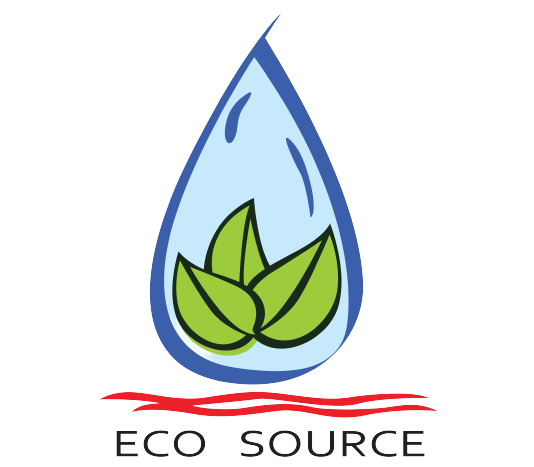
 Dịch
Dịch